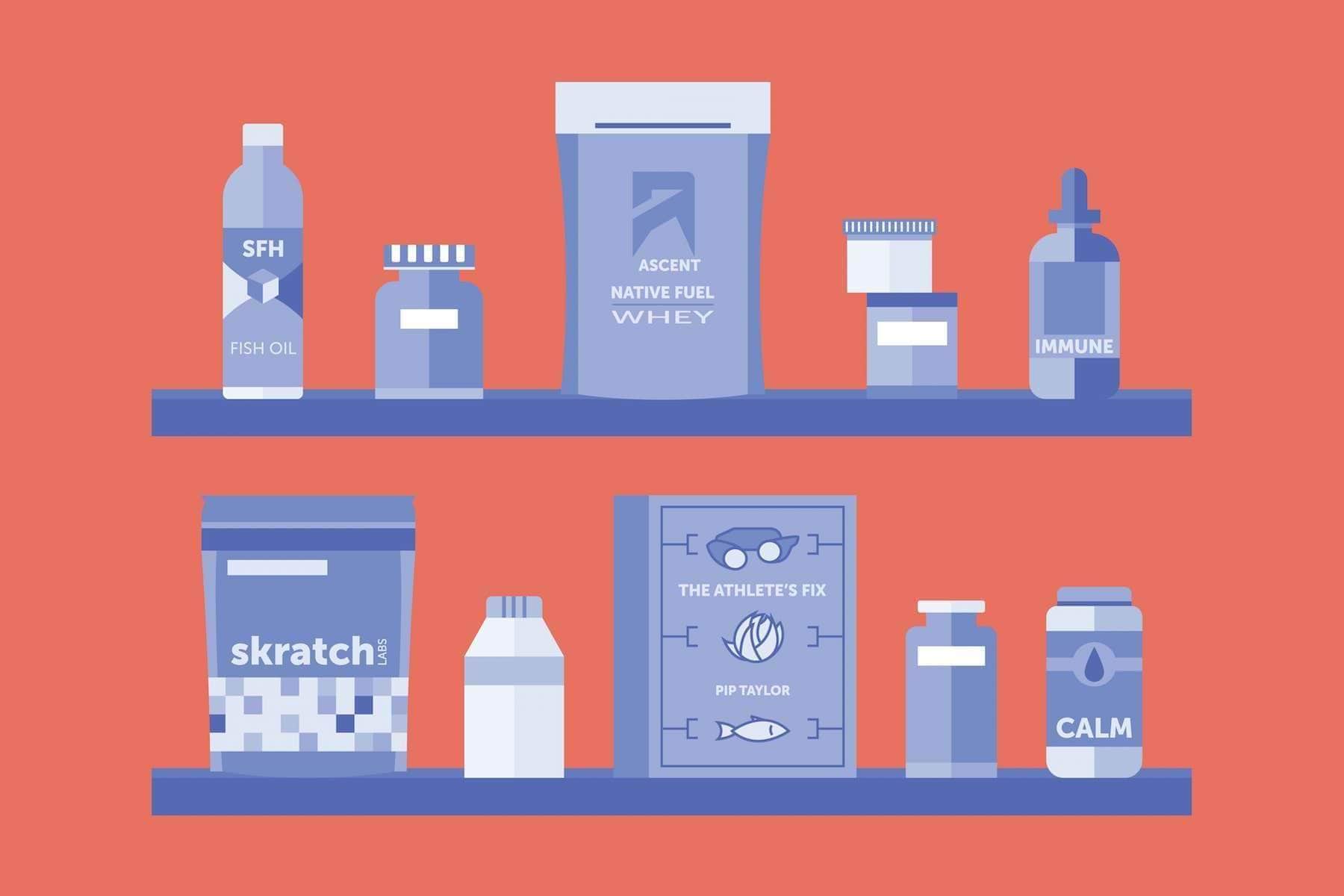
The theory goes that a well-balanced diet will provide all the vitamins and minerals you need to support health and training regimes. However, athletes may have additional requirements.
"Vitamins & Supplements: What’s Essential and What’s Not" was written by Pip Taylor. Pip is an accredited sports nutritionist and accredited dietitian, professional triathlete, author and mother of two. Pip recently had her first book published, 'The Athlete’s Fix’. Check out Pip's favorite snacks for fueling workouts here.
The theory goes that a well-balanced diet will provide all the vitamins and minerals you need to support health and training regimes. However, athletes may have additional requirements: heavy sweating can lead to large losses of certain minerals, elevated metabolic demands, as well as exercise-associated muscle damage, and tissue repair. The most common vitamins and minerals that athletes lack are iron, magnesium, copper, calcium, Vitamin D and the B vitamins. But supplementation should not be taken lightly, as overdoing things can be dangerous for health and detrimental to performance. It is worthwhile spending a little extra time and money to ensure you are getting a high quality and safe product. Here are a few essentials to look out for:
-
Iron: Iron deficiency is prevalent in most athletes especially in females, vegans, and vegetarians (or for any restricted dietary intake). Because iron is needed for the production of hemoglobin and is involved in energy production, symptoms of iron deficiency include fatigue/lethargy, reduced tolerance to training and impaired recovery, pale skin, and increased incidence of infection/illness.
- Supplements: Iron should be taken under the direction of a physician after an iron deficiency is diagnosed (via a simple blood test) to avoid complications from iron overload.
-
Magnesium: Sweat contains multiple minerals, including magnesium. Magnesium is needed for the relaxation phase of muscular contraction – so a deficiency can mean reduced power but can also lead to cramping and muscle soreness. Magnesium is found in dark leafy greens and other vegetables, fish, nuts, seeds, and legumes, of which we generally don’t tend to eat enough. Couple this with intense training and deficiency is very common amongst athletes.
- Supplements: Available in pill or powder form and are generally safe to take without medical direction. We recommend Natural Vitality Natural Calm.
-
Sodium: Clean eating athletes can often be deficient in sodium. Fresh foods contain little to no sodium. During the summer or throughout intense workouts, significant quantities of sodium can be lost via sweat. Mild deficiency leads to muscle cramps, early fatigue, and hydration issues, and can be dangerous.
- Supplement: Basic salt tablets provide sodium but for a more balanced intake try a low-calorie electrolyte sports drink or electrolyte tablet to assist in rapidly replacing fluids and electrolytes. My favorite electrolyte drink mix is Skratch Labs Exercise Hydration Mix.
-
Omega 3 fatty acids: Most diets don’t provide adequate Omega 3 to balance out intake of Omega 6’s. This can promote inflammation, which means reduced recovery and adaptations to training as well as increased risk of illness.
- Supplement: Look for quality supplements from sustainable sources. Algal sources provide sustainable vegan options. For another option, check out SFH Fish Oil.
-
Probiotics: A healthy gut is essential for absorption of nutrients but is also linked with good health in general. Probiotics are ‘healthy’ bacteria that help support good gut health and function. They can be found in many types of foods such as yogurt, kefir, sauerkraut, and kombucha but also in pill and powder form. There is no known upper limit for intake of probiotics but some people do experience changes in GI function temporarily when introducing probiotics to their diet.
- Supplement: Look for a multi-strain supplement with a high live count of bacteria. Check the label as some supplements need to be refrigerated.
In Summary: Eat a wide variety of healthy whole foods, but don’t be afraid to use supplements wisely to help support optimal health and activity. Choose carefully, seek out guidance, and take a quality over quantity approach.
Check out The Feed's supplement options HERE.
